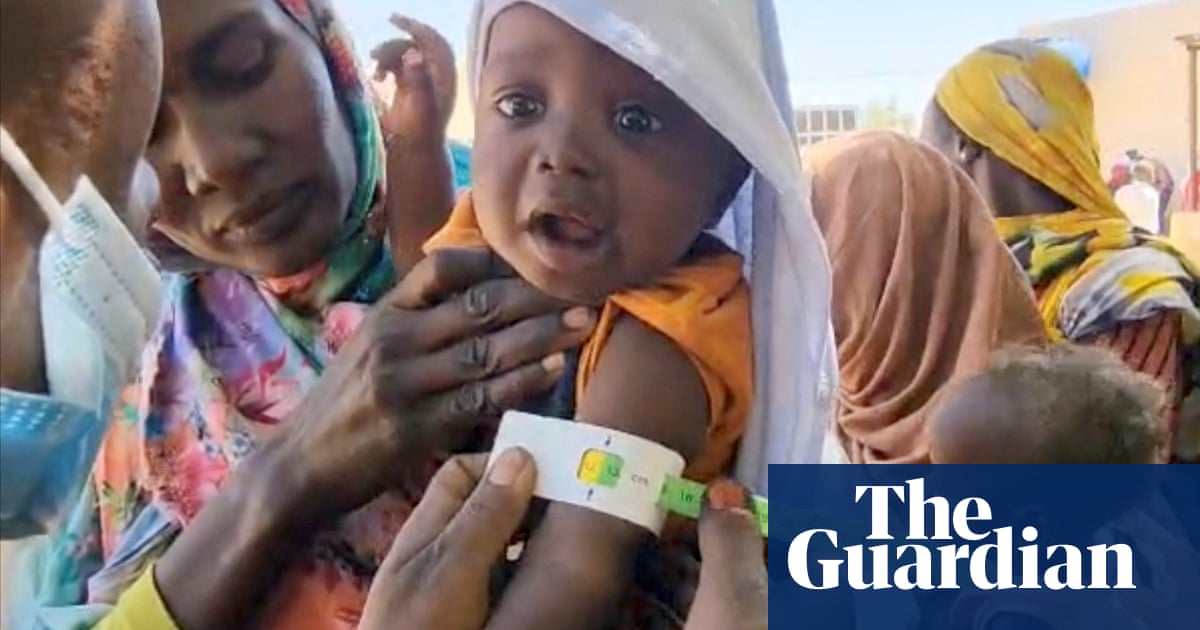Photo credit: www.theguardian.com
Sudan is currently facing an unprecedented humanitarian crisis, with the ongoing civil war highlighting the severe toll on its civilian population. As the conflict approaches its third anniversary, international organizations, including NGOs and the UN, have voiced concerns over the stagnation of global responses to the dire situation.
On the anniversary of the outbreak of violence in Khartoum between the Sudanese army and the paramilitary Rapid Support Forces (RSF), reports emerged of grave atrocities, particularly attacks on refugee camps in the Darfur region. Eyewitness accounts suggest that hundreds could have perished due to these RSF offensives, exemplifying the war’s brutal nature and its far-reaching humanitarian repercussions.
The ramifications for the country’s 51 million inhabitants are staggering. Reports indicate that tens of thousands are dead, while severe food shortages threaten the lives of many. Approximately 13 million individuals have been displaced, with around 4 million fleeing to neighboring countries.
Elise Nalbandian, a regional advocacy manager for Oxfam, remarked, “Sudan is now in a worse state than ever before. It holds the record for the largest humanitarian, displacement, and hunger crisis. This is an unprecedented level of suffering.”
According to Daniel O’Malley, the head of the International Committee of the Red Cross delegation in Sudan, the conflict has resulted in extensive violations of international humanitarian law. “The entire civilian population is caught in a perilous situation, unable to escape the violence among multiple factions. The numbers are staggering,” he stated.
map of Sudan indicating areas of occupation by different forces
Recently, the Sudanese military managed to reclaim control over the important presidential palace in Khartoum, but the fighting continues elsewhere. In the Darfur region, more than 400 fatalities have been reported amidst RSF efforts to gain control of El Fasher, the last major state capital not dominated by the RSF.
In response to the hostilities, the RSF has initiated both ground and aerial assaults targeting El Fasher and the surrounding displacement camps of Zamzam and Abu Shouk. Observations confirmed that UN officials documented at least 148 deaths, with credible reports suggesting that the toll exceeds 400.
Data from the UN’s International Organization for Migration indicates that nearly 400,000 individuals may have been forcibly displaced from the Zamzam camp alone since last weekend.
UN rights chief Volker Türk expressed deep concern over the situation, remarking that the large-scale violence illustrates the consequences of international inaction. “The attacks have worsened an already grave humanitarian crisis in a city that has been under prolonged siege by the RSF,” he noted.
Footage shared by North Darfur Observatory for Human Rights displays the chaotic exodus from the Zamzam camp, with people fleeing while carrying their belongings on camels and donkeys.
El Fasher is amidst a declared famine crisis affecting about 637,000 individuals. The struggle for food security looms large, with approximately 24.6 million people—almost half of Sudan’s population—reporting insufficient access to food supplies.
In light of these alarming conditions, the United Kingdom is set to convene ministers from 20 nations in London on Tuesday, aiming to revitalize stalled peace negotiations. However, previous diplomatic pursuits have often been overshadowed by other global crises, including those in Ukraine and Gaza.
Leni Kinzli, representing the World Food Programme in Sudan, noted that the escalating conflicts worldwide, combined with restricted media access and Sudan’s historical isolation since the fall of Omar al-Bashir’s regime, have contributed to a lack of international focus on Sudan’s plight. “The level of awareness and response to Sudan’s crisis pales in comparison to other global issues. Unfortunately, Sudan is neglected,” she asserted.
map depicting movement of refugees and areas where they are concentrated
The origins of the conflict can be traced back to late 2018 when significant protests erupted against then-dictator Omar al-Bashir. The military leader Gen Abdel Fattah al-Burhan formed an alliance with RSF chief Gen Mohamed Hamdan Dagalo, also known as Hemedti, to remove Bashir from power in a coup in April 2019. Their alliance persisted until 2021, when they again acted together to overthrow a transitional civilian government, intended to steer Sudan toward democratic governance. However, tensions between the two leaders eventually erupted into a full-scale war.
The RSF, initially a paramilitary offshoot of the Janjaweed militias—infamous for atrocities during the Darfur genocide in the mid-2000s—rapidly expanded their control early in the conflict. Reports highlighted a horrific pattern of violence in Darfur, with systemic attacks by the RSF and allied militias targeting non-Arab ethnic groups. Survivors who sought refuge in Chad have recounted harrowing stories of gender-based violence and targeted killings.
Both the RSF and the Sudanese army have faced allegations of war crimes throughout the course of this conflict. In January 2023, the United States formally designated the RSF’s actions as genocide, marking a tragic milestone as it was only the second time in less than three decades that genocide has been identified in Sudan.
Additionally, the UAE has been accused of exacerbating the conflict through arms sales to the RSF. Evidence, such as Emirati passports discovered on battlegrounds last year, suggests possible covert military involvement by the UAE, though the nation has denied any direct participation in the conflict.
Source
www.theguardian.com

